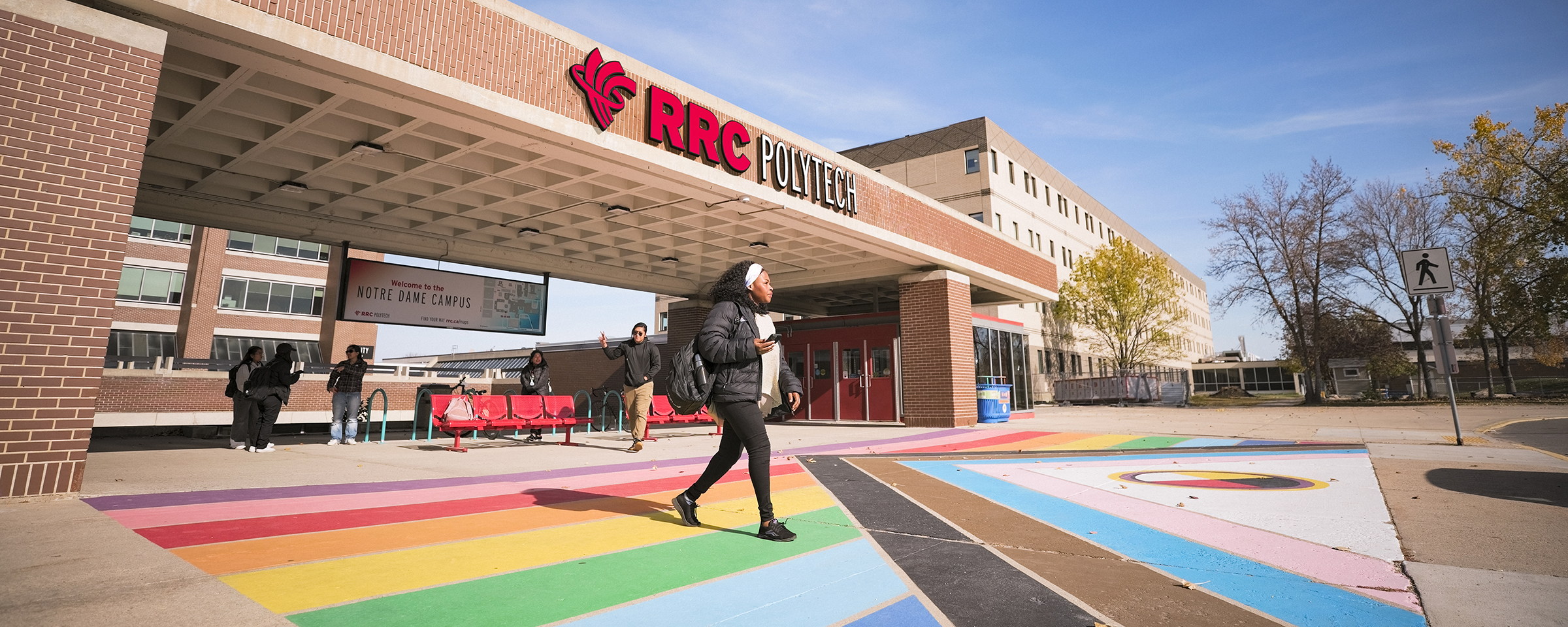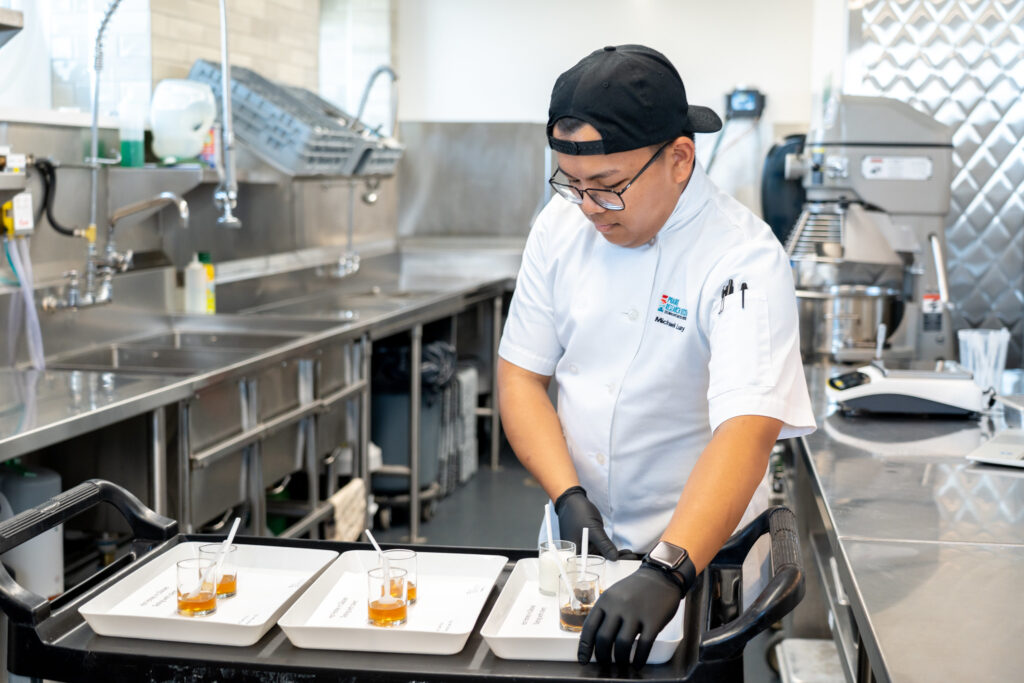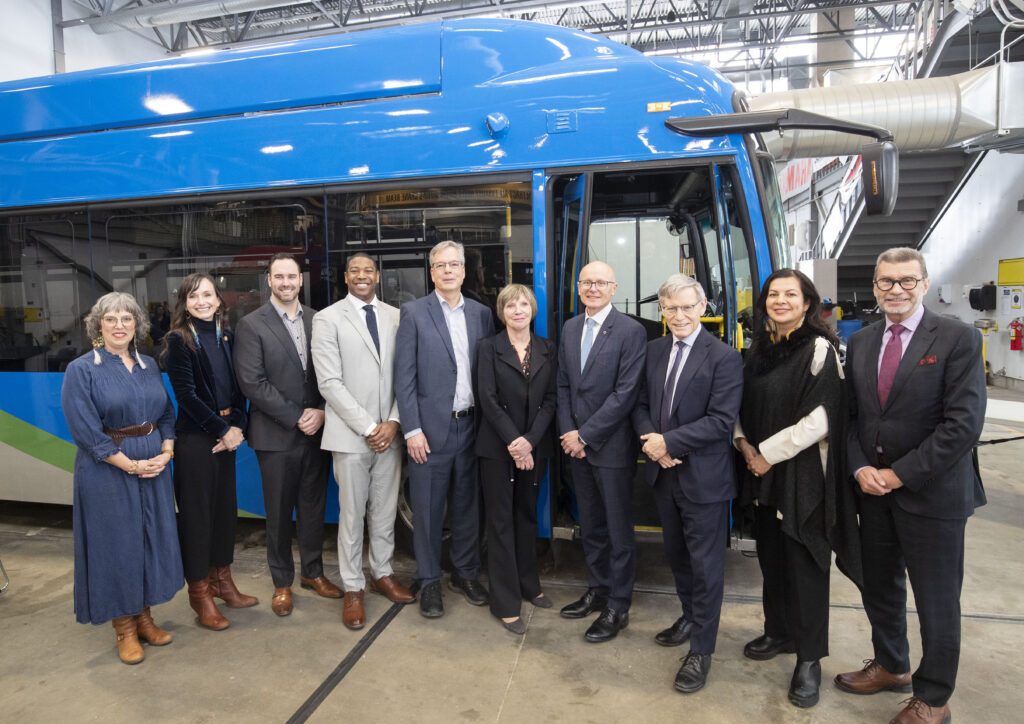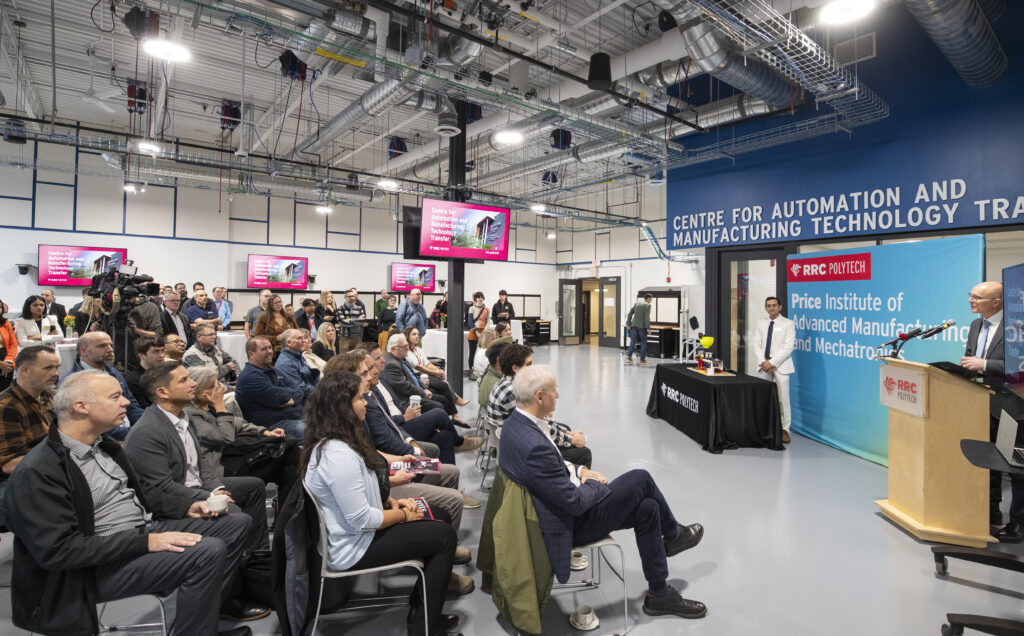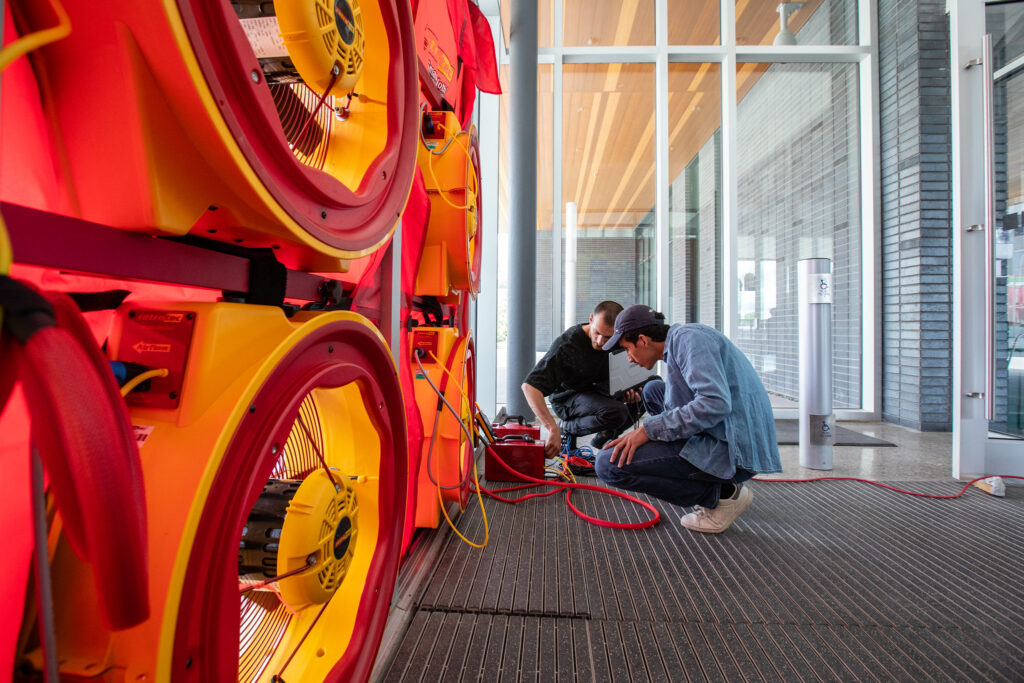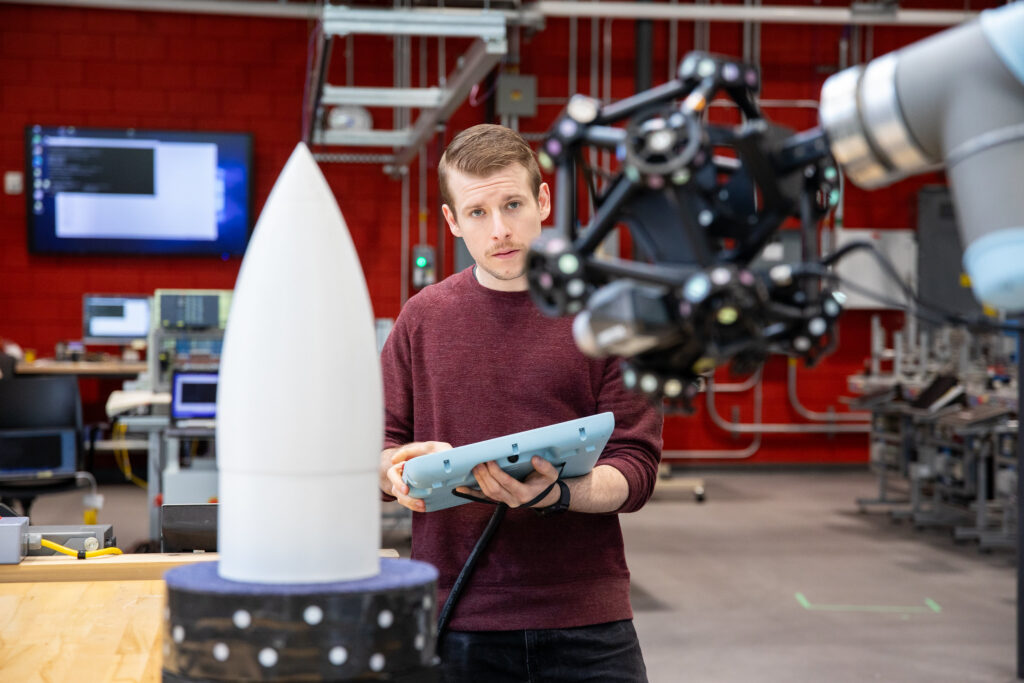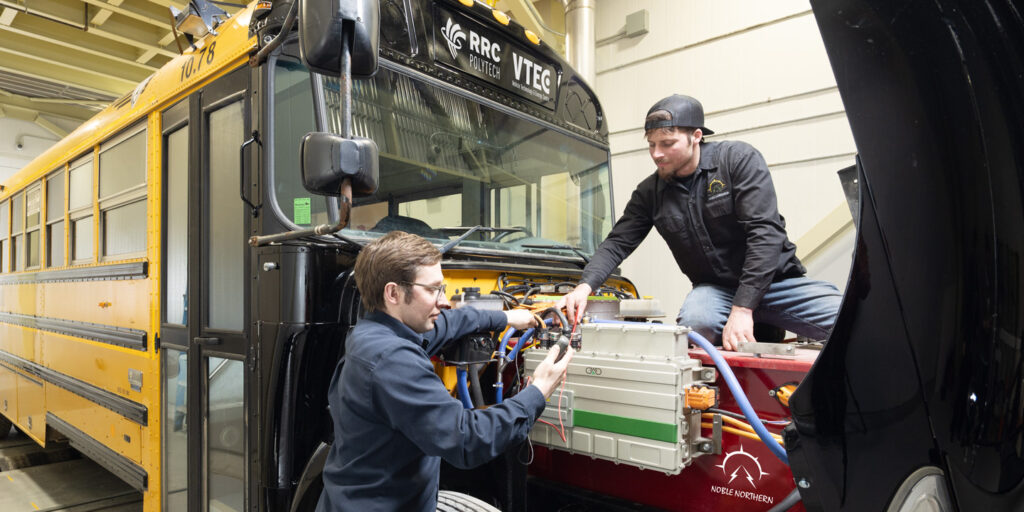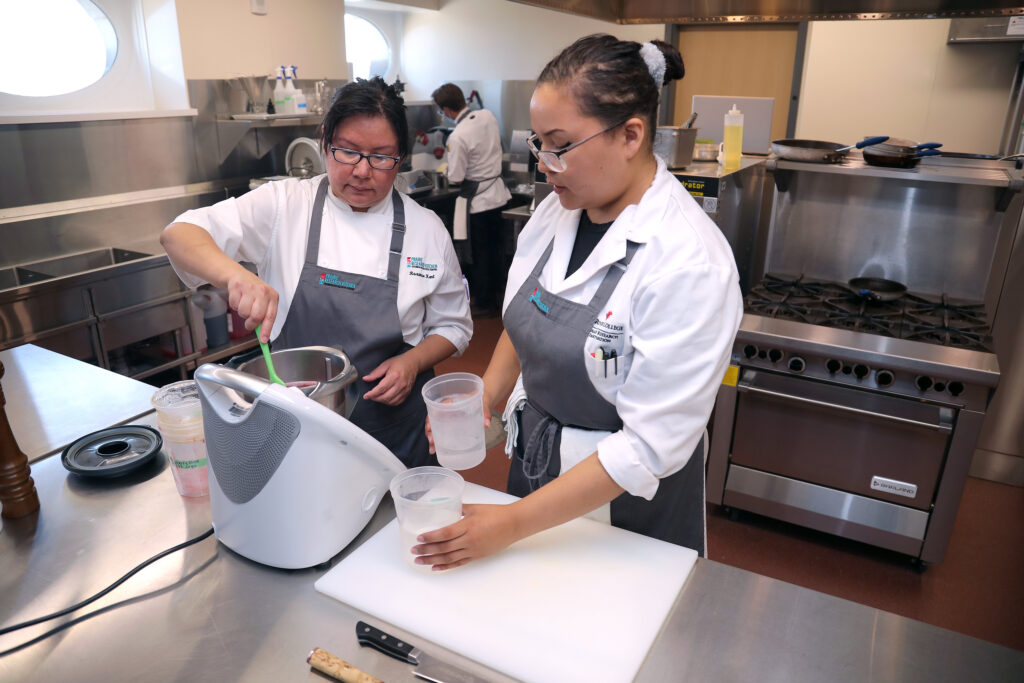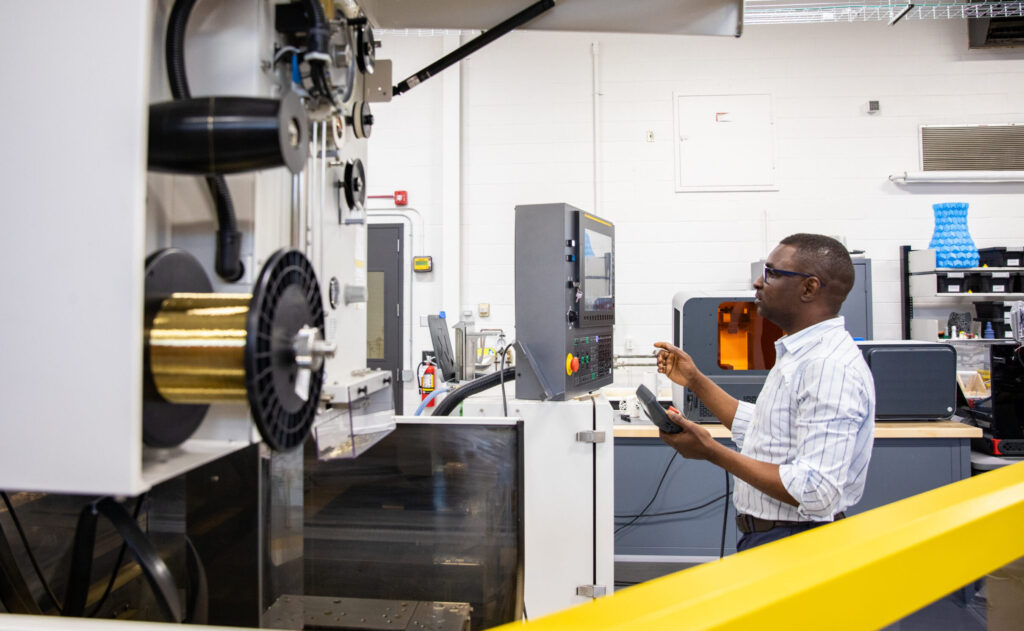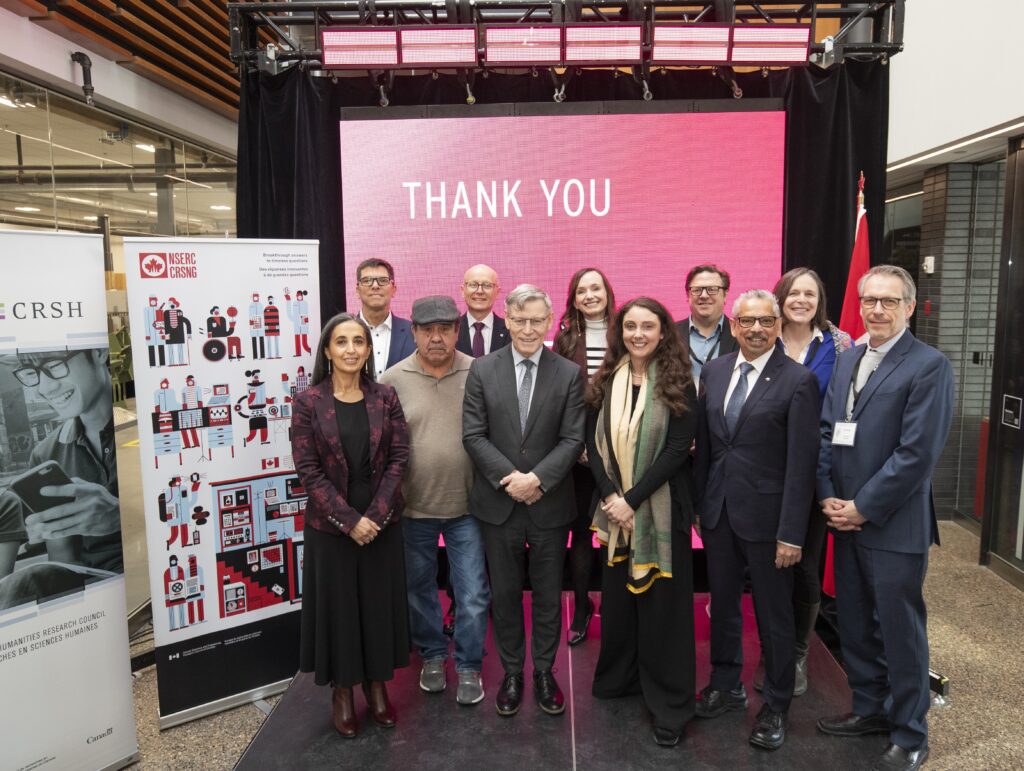Prairie Research Kitchen and Bee Maid Build Buzz with Hot Honey Collab
Bursting onto menus around the globe as a featured flavour, hot honey is the latest food sensation that’s tickling the tastebuds of consumers — from casual diners to connoisseurs. Now, a uniquely Canadian version has hit the market as a result of an applied research project at RRC Polytech.
Bee Maid Honey Limited, a co-operative owned and operated by over 300 Western Canadian beekeepers, recently partnered with RRC Polytech’s Prairie Research Kitchen (PRK) to develop its own signature version of hot honey that uses chipotle to bring smoky heat to its traditionally sweet and pure product.
“Bee Maid’s chipotle hot honey is a tasty example of how the Prairie Research Kitchen leads food innovation by supporting companies and communities with access to state-of-the-art facilities and a team of professional and student researchers who specialize in blending food science with culinary skills to solve specific challenges,” says PRK Director Mavis McRae.
 Many hot honey products popularized in the US refer to its breakthrough use in the Nashville area and rely on a nondescript pepper blend to achieve its ‘hot’ characteristic, focusing more on heat than flavour. Bee Maid’s experts worked closely with the PRK team to develop a 100 per cent Canadian version with heat from a defined flavour profile that chefs with refined palates can instantly identify and trust to be consistent in their recipes.
Many hot honey products popularized in the US refer to its breakthrough use in the Nashville area and rely on a nondescript pepper blend to achieve its ‘hot’ characteristic, focusing more on heat than flavour. Bee Maid’s experts worked closely with the PRK team to develop a 100 per cent Canadian version with heat from a defined flavour profile that chefs with refined palates can instantly identify and trust to be consistent in their recipes.
“For over 70 years, Bee Maid has proudly packed the finest-quality white, golden and amber honey produced in Alberta, Saskatchewan and Manitoba,” says Shannon Bowden, Senior Brand and Communications Manager at Bee Maid. “Our iconic brand is world-renowned for traceability, quality assurance and sustainability — but prior to collaborating with the Prairie Research Kitchen we didn’t have the staff or product development resources to fully explore flavour enhancements like this.” Read More →
